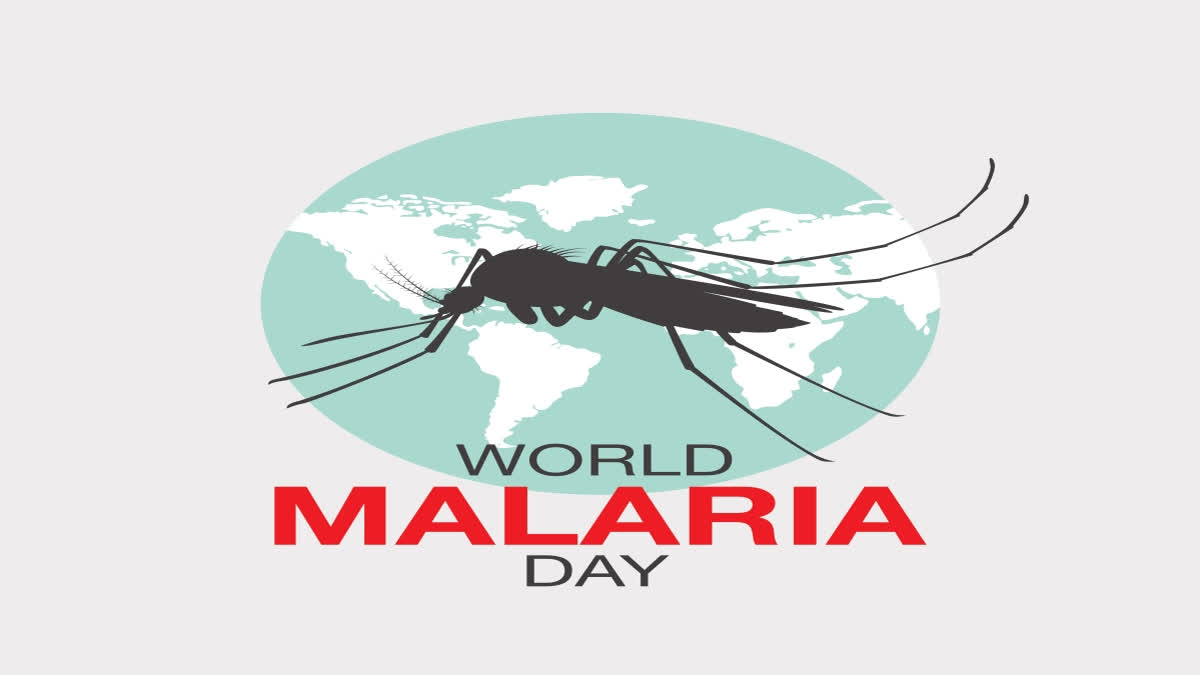Hyderabad: World Malaria Day (WMD) is observed on April 25 every year to raise awareness about the global effort to control and ultimately eradicate Malaria.
It was first held in 2008, and the day was established by the World Health Organization (WHO) Member States during the World Health Assembly of 2007. Malaria is a dangerous mosquito-borne disease that can cause death in severe cases. However, this disease can be prevented and its cure is also possible if treated on time. The Day is celebrated every year on April 25 to spread awareness about it.
World Malaria Day Theme: The official theme for World Malaria Day 2024 is 'Accelerating the fight against malaria for a more equitable world'.
What is Malaria: Malaria is a serious and potentially fatal disease caused by parasites that are transmitted to humans through the bites of infected mosquitoes. It is a major public health concern, particularly in tropical and subtropical regions, affecting millions of people every year.
The history of World Malaria Day dates back to 2000, when the African Summit on Roll Back Malaria was held in Abuja, Nigeria. The summit's main agenda was to highlight the devastating health risks associated with Malaria and design an action plan to reduce Malaria cases and deaths by half by 2010, but progress was slow, and Malaria remained a major public health concern worldwide.
In 2016, WHO launched the Global Technical Strategy for Malaria 2016-2030, emphasising the goal of reducing Malaria cases and deaths by 90 per cent by 2030. To raise awareness about the significance of the strategy and to stimulate global action, WHO declared 25 April as World Malaria Day.
Burden of malaria in India:
The World Malaria Report 2023 shows that the number of cases and deaths due to the mosquito-borne infection in India has continued to decline. With an estimated 33.8 lakh cases and 5,511 deaths, India saw a decline of 30 per cent in malaria incidence and 34 per cent in mortality in 2022, compared to 2021.
While the world continues to see an increase in new cases of malaria, India is the only country to have bucked the trend in 2022, India witnessed a 30 per cent reduction in new cases and a 34 per cent decline in deaths compared to 2021. In contrast, globally, 249 million new cases were recorded in 2022, which was five million more than in 2021. The number of deaths recorded in 2022 was nearly 600,000 jumped from the numbers recorded in 2019 (570,000). In 2021, 619,000 deaths were recorded globally.
Nearly 3.3 million new malaria cases were detected in India in 2022, and 5,511 persons died.
Worldwide Burden of Malaria: Globally in 2022, there were an estimated 249 million malaria cases in 85 malaria endemic countries and areas (including the territory of French Guiana), an increase of five million cases compared with 2021.
Globally Deaths: Globally, malaria deaths declined steadily from 8,64,000 in 2000 to 5,86,000 in 2015 and to 5,76,000 in 2019. In 2020, malaria deaths increased by 10 per cent compared with 2019, to an estimated 6,31,000. Estimated deaths declined in 2022 to 6,08,000. The percentage of total malaria deaths in children aged under five years decreased from 87 per cent in 2000 to 76 per cent in 2015. Since then, there has been no change
Symptoms of Malaria:
- Excessive fatigue
- Fainting
- Difficulty in breathing
- Dark urine
- Jaundice (yellowing of eyes and skin)
- Abnormal bleeding
Prevention tips to reduce the risk of malaria:
- Use oil – Oils may be applied to the water surface. This suffocates the larvae and the pupae. You can use vegetable oil or kerosene oil to do the same.
- Fog them out – Have fogging in your area done before the rainy season starts and this should be repeated at adequate intervals. Fogging helps to kill the mosquitoes that might be hiding in places.
- No standing water – Don’t keep water accumulated in coolers, small pits, or tyres. These are suitable habitats for mosquitoes to grow. It is best to ensure that places that are kept for storage have no standing water. If post rains, you notice the same; you should clean the surroundings immediately.
- Pet the right fish – Keeping mosquito fish (Gambusia) in small water bodies can help to control the mosquito larva. This is because these fishes feed on the mosquito larvae. This shall help you if you have a big water body near your house.
- Wear the right clothes- Wear proper clothes, especially during the evening. Clothes should cover your extremities and must be soothing. Cotton clothes are preferable and they must be of light colour.
- Use mosquito repellent creams and bands- You can use various over-the-counter mosquito repellant creams and bands. The same shall help keep you safeguarded even when you are sitting in a garden or outside playing.
- Use mosquito nets – This is the most simple and ineffective way of keeping the mosquitoes away. A person is most vulnerable when they are sleeping. Using mosquito nets neither exposes you to harmful mosquito chemicals nor does it harm your body.
- Use window nets – Cover your windows well and keep them closed. If you want fresh air to come in the house cover them with nets to ensure that mosquitoes don’t enter your house.
- Get the shot – Use antimalarial prophylaxis before going to endemic zones.
- Prevention is better than cure – Effective treatment is the cornerstone for preventing its spread. Consult a specialist immediately if you notice that you have developed high fever, chills, nausea and weakness.



